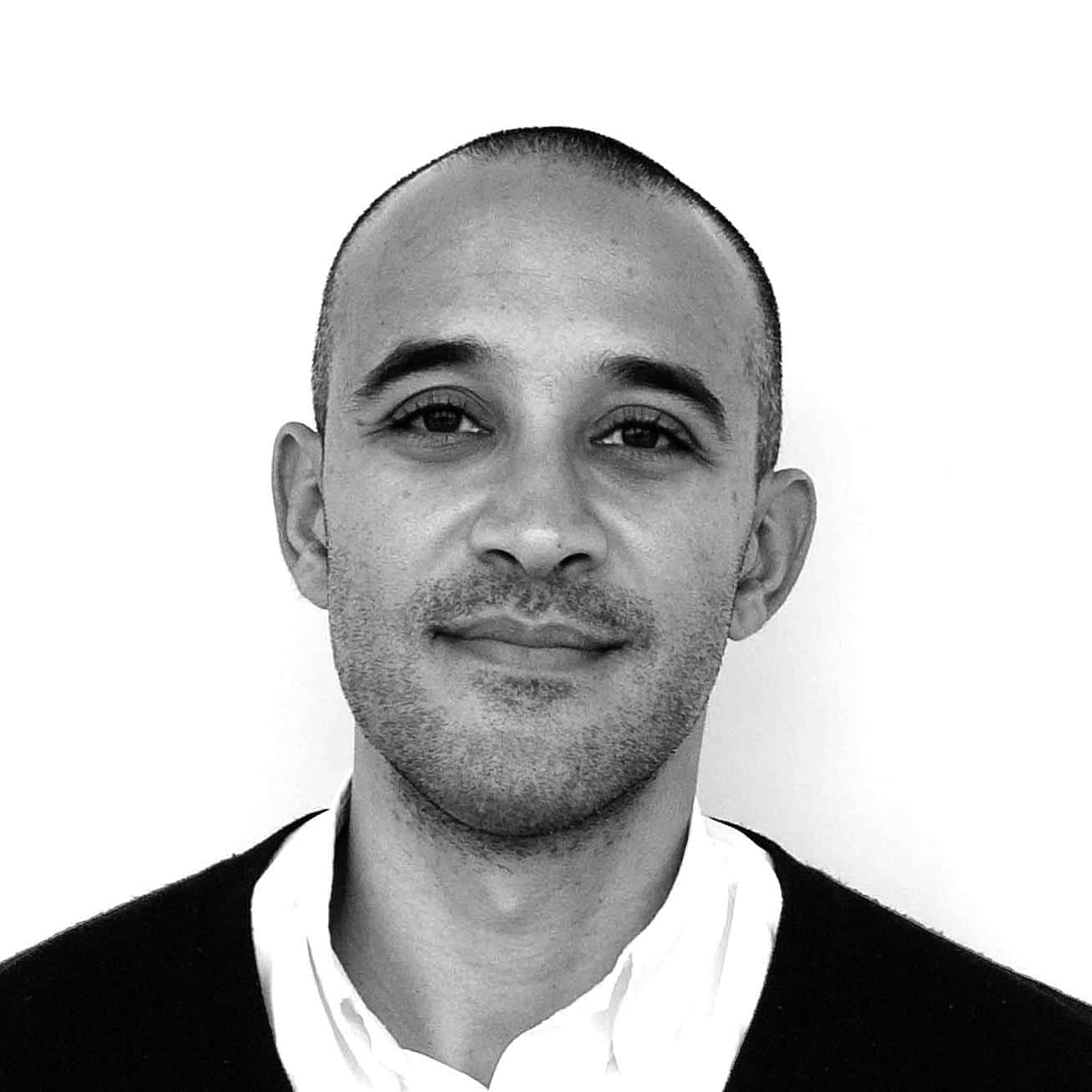Marcus Ryder MBE on tackling institutional racism
Culture
As his new book with Lenny Henry - called Access All Areas - comes out, Marcus shows us how better and fairer representation at all levels is the key to not just changing the media, but all areas of business.
On BAFTA whiteness as the origin of ‘Access All Areas: The Diversity Manifesto For TV and Beyond’…
I first started working with Lenny Henry in 2013 after he had made a horrendous pun at the BAFTAS. I think the winners had been exclusively white that night. He’d drunk a bit too much, and an Evening Standard reporter asked him what he made of it and he made this silly pun – he said it’d been “All white on the night.” Because Lenny’s a star it was picked up and reported everywhere.
At the time I was the chair of the Royal Television Society diversity committee. I asked Lenny to be in a panel discussion, but he did not want to do it. When we met, he ranted at me for half an hour, maybe longer – it felt like longer. He thought it was a waste of time, he’d done diversity stuff before and felt it was complete nonsense. He likened it to a group hug – everyone comes together, has a nice group hug and then goes home and nothing changes.
I was working for BBC Scotland at the time, and the BBC had increased its regional diversity by setting quotas. I said, ‘What about quotas?’ He wasn’t too sure about it but he liked the idea of actually coming up with solutions rather than us just going on about how terrible the world is, wishing people were nicer.
It was because of that that he agreed to take part, and since then we’ve been on this rollercoaster ride. The book is as much about the journey of two very politically naïve people and how we’ve learned to campaign to increase diversity. In many ways it is a political awakening. We learnt so much along the way that we kept saying we should write this down. We didn’t decide to write the book we ran out of excuses to not write it.
The need for the book is more pressing than ever. The irony was that we were giving a press interview to Channel 4 news on the same day you had these white nationalists storming the Capitol. The idea of needing better representation, not just in the media but throughout society, of making sure there is better equality, making sure there is better justice for all different people in society, of pushing back against some of the entrenched powers, is more pressing than ever.
We were asked why we wrote the book on Channel 4. I gave a very polite answer, but I wanted to say, “Didn’t you just fucking watch the last piece you did? The white nationalists are literally storming the gates! Not even metaphorically, they are literally storming the gates! Don’t you think there is more need for diversity throughout society?”
On the key barriers to diversity
The key thing we found out was that so many institutions are making it up as they go along.
A turning point for me came when a BBC executive – this was after I left the BBC – said, ‘We’re introducing the Rooney Rule.’ The Rooney Rule comes from the NFL and it’s the idea that when you are interviewing for senior positions, like the manager of the team, you need to have one black person or someone from a diverse background. This executive said, ‘Marcus we’re interviewing using the Rooney Rule for senior positions,’ and I looked at him nonplussed. He was surprised – this was him bragging about how great it was that they’re rolling out this policy – and he said, ‘it works doesn’t it?’
At that moment I realised he had the best intentions but he hadn’t done any of the research as to whether the Rooney Rule actually worked. And the academic research says the jury is definitely still out on it.
I realised talking to so many people at different organisations from all walks of life, that people do have the best intentions but I was surprised at the lack of academic rigour to see what has and hasn’t worked in the past. We keep repeating the same mistakes, we don’t build on our successes…
So that’s why we then set up the Lenny Henry Centre for Media Diversity. It isn’t meant to be a campaigning body where we’re telling off Channel 4 or Ofcom, its meant to help that type of executive who wants to roll out something like the Rooney Rule – come to us first and we can tell you how it might work. For example, it might work if you have two diverse candidates in your interview panel, it almost definitely doesn’t work if you only have one. It’s to try and help give policy makers some academic rigour and implement policies that really work.
On the Grey Rhino Theory as revealing why real changes are not being made
There’s a Professor from America called Michelle Wucker who developed the Grey Rhino Theory about the reason why large institutions put off making big decisions. The analogy is that you can see the dust of the stampeding rhino in the distance, but you don’t deal with it until the rhino is right on you and about to trample you.
The most obvious example of that is climate change. Everybody knows – apart from a few Trump supporters – that climate change is coming and is going to be a disaster for the entire world, and yet we’re still not implementing the right policies.
Diversity is also an obvious example – everyone knows that if we don’t implement it properly you will have a more fractured society on a macro level and on a micro level your black customers or black or Asian viewers will desert you, and go to people that are more representative. You can see it in UK broadcasting already, people who are from more diverse backgrounds – people not based in London, like Scotland, but also ethnic minorities – are more likely to go to streaming services where they feel they are better represented.
Everyone can see it’s a problem, but it’s a Grey Rhino problem. Michelle Wucker thinks there’s various reasons for Grey Rhinos. One is that the people in charge hope the Grey Rhino won’t arrive when they’re in charge; the next person will have to deal with it. Secondly, dealing with it costs a lot of money. You have to make an active choice and if you make the wrong policy choice you might lose your job. Not dealing with it is often the safer option for the person in power, and so that’s why on a person level management tries to kick the can down the road.
You see it in climate change all the time. To deal with it might cost a lot of money and the politicians might lose elections if they spend lots of taxes or raise petrol prices. You don’t want to make that difficult decision, so you hope that temperatures won’t rise by two degrees until the next person is Prime Minister.
It’s the same with diversity: it might require some real structural change, some big decisions and it might jeopardise your position. So you hope you can just tweak it, put in a diversity policy here, a training scheme there, do a bit of mentoring, a bit of a band-aid, and then move on.
On the dangers of moral licensing…
When you look at mental health and any of those issues you can suffer from moral licensing. Moral licensing is the equivalent of going to the gym and then eating a doughnut. You workout, think ‘I’ve burnt the calories, I deserve a treat, I can eat a donut.’ Even if you ran on the treadmill for an hour you’ve only burnt off 700 calories, and the doughnut is 900 calories. You’re doing more bad than good.
A lot of time in mental health work or diversity work, there’s a lot of moral licensing. You put on the one seminar and think, ‘Great I’ve done something!” So then you don’t feel the urge to actually restructure the way that you work so people have a better work-life balance for their mental health. You’ve done the nice seminar with regards to women, so you don’t worry about whether you’ve implemented proper childcare provisions. The fear is there’s a lot of moral licensing going on.
On whether the Black Lives Matter movement has changed things…
I think it’s too early to tell. The optimist in me says its brought attention to these issues and that black people can talk and they’ll be listened to when they weren’t being listened to before. And that companies are actually trying to address these things.
There’s an asset management company called State Street which deals with investments of 3.1 trillion a year, and they’ve announced they won’t invest in companies which do not reveal the racial diversity of their management board.
That’s major – you’re talking about 3.1 trillion pounds of investment and companies will now have to audit their management board and make it public. That’s great and its doubtful that would have happened before Black Lives Matter.
The fear of course is that it won’t sustain, that 2021 will have something else coming along or the urgency will be lost. The other fear is that moral licensing. That because the BBC have done Steve McQueen’s Small Axe and Michaela Coel’s I Will Destroy You, that they’ll feel like they’ve done that now.
The pessimist in me worries about moral licensing, the optimist in me looks at what’s happened and thinks it’s brilliant and would never have happened in 2019. Ask me the question next year. It’s almost the equivalent of asking, ‘Do you think we’ve got over the worst of covid-19 yet?’
On seriously addressing institutional racism…
People talk about systemic racism and structural racism – if something is systemic or structural then that means we have to actually address the structures. For example, that might mean looking at career paths for people. One very good example is Ofcom looks at how much money Channel 4 and the BBC spend outside of London. That’s great, I was in Scotland for 8 years and completely support regional diversity, but the corollary of that is that you are taking production spend out of London, which has got 42% BME or non-white population, and moving that production spend to areas of the country with a far lower percentage. So once you make those structural policy changes then you need to look at if you need to reserve money for non-white directors. Or find a way to actively help BAME-led companies set up in Scotland and Wales.
I have worked in television for 25 years, and I can count on one hand the amount of people I would feel are ‘racist’. The industry is full of good people, nice people – but it is about the structures.
Another good example are BAFTA. They have taken onboard the criticism of not being representative – and this is despite the fact they have an Asian person as CEO, which shows that just putting a non-white person or disabled person or Asian person in a top position isn’t going to make everything better. Obama as President for 8 years did not solve racism in America.
So BAFTA have realised they have to make some structural changes about who can become a member. How much they should charge for membership. How the actual voting systems for nominations need changing. It’s about structural change rather than just hoping that people will become ‘nicer’ people.
On why media representation is about behind the camera as well as in front of it…
It’s about who’s commissioning, writing, directing, producing. For example, 13.6% of working film directors in the UK are women. We are literally seeing the world through men’s eyes. Something is wrong there – we can’t understand how women see the world and what their priorities are. Even if there are lots of female leads and good female characters, we have got to increase the number of women working.
It’s even worse with disability. According to one survey 0.3% of the UK film workforce is disabled. It’s ridiculous. The percentage of the UK who are disabled is close to 20%, depending on how you define disability. So no wonder we don’t build our buildings to accommodate disabled people, no wonder we don’t implement policies that help them. We just don’t see their perspectives, we don’t see their lives.
We have to make sure it’s not about putting someone on a brochure, they have to be in the boardroom.
On spreading the message to other industries…
There’s been studies in America showing infant mortality rates for black children are lower if they have a black doctor. Now it’s not that the white doctors are evil and nobody knows what the correlation is – because correlation is not causation – but that in itself tells you we need to increase our diversity so our white doctors understand their black patients better.
So there’s transferable lessons in medicine, which sounds like it would be more objective than the creative industry, but you do need it.
You need it in AI too. Tech is massive in the need for diversity. The Trolley Problem is a thought experiment where you’re in a trolley going down a track, and there’s 3 people working on the track about to be hit and there’s a man working on bridge above the track What you can do is push the man on the bridge to fall in front of the trolley – you kill the man but save the 3 people. And there’s lots of different variations…
But what’s interesting is different cultures come up with different answers. Generally speaking people raised in Europe and the West have very similar answers and people raised in parts of Asia generally come up with different answers.
This is interesting in the case of autonomous cars. Because if you are programming the AI for your autonomous vehicle do you programme it with Asian values or European values? Or do you change depending on where you go and have a different set of programmers for Asia, for example. Are you even thinking about it or are you assuming, as you’re making it in Germany, that your values are universal.
There are absolutely transferable lessons and a massive need for cross sectors to have diversity.
On their new grant opportunities…
We set up the Lenny Henry Centre in March 2020, so we really want to establish that to help broadcasters and newspapers with policies. We’ve set up small grants so if people working in the media have an aspect of diversity they want to investigate, we’ll give them an academic leave and a small grant of a few thousand pounds so they can do a report. We just did that with for a report on female sound recordists in the industry. We’re eager for people to come forward for that.
Buy Marcus and Lenny Henrys book, ‘Access All Areas’.
Follow Marcus on Twitter:
There is nothing more rewarding than receiving the respect of your peers. Incredibly honoured and very grateful to be included in the #powerlist2021 of 100 most influential Black Britons. https://t.co/mXFsvQ8Dd0
— Marcus Ryder (@marcusryder) November 17, 2020
This story is part of the guest edit by Sleaford Mods’ Jason Williamson.

For the latest on the Sleaford Mods guest edit
Sign up to our newsletters...



















